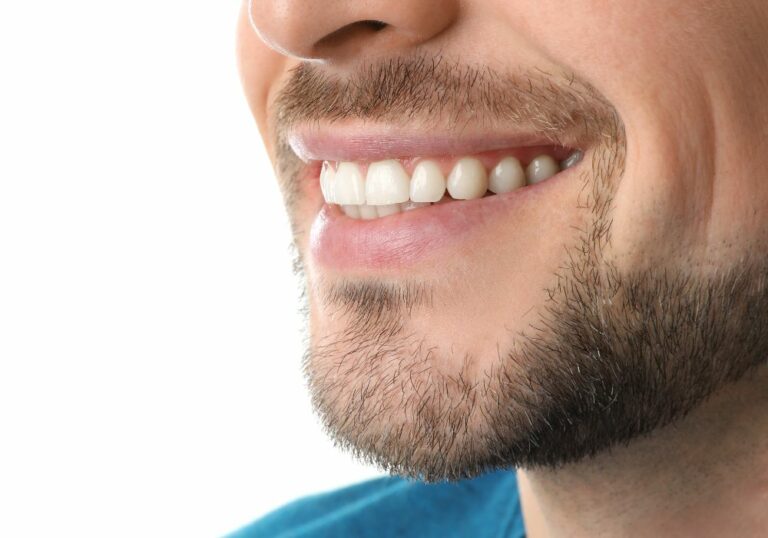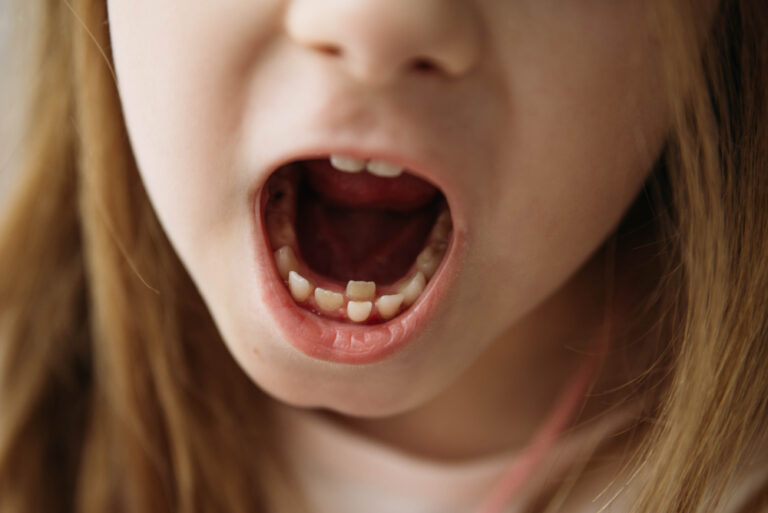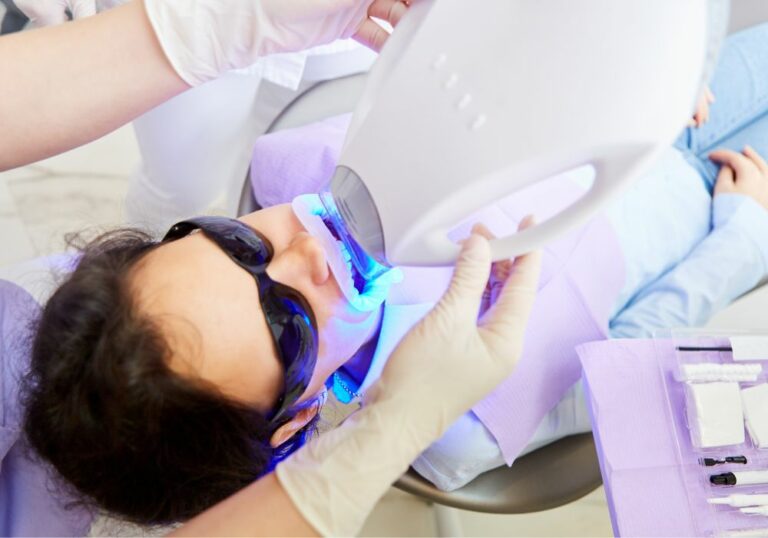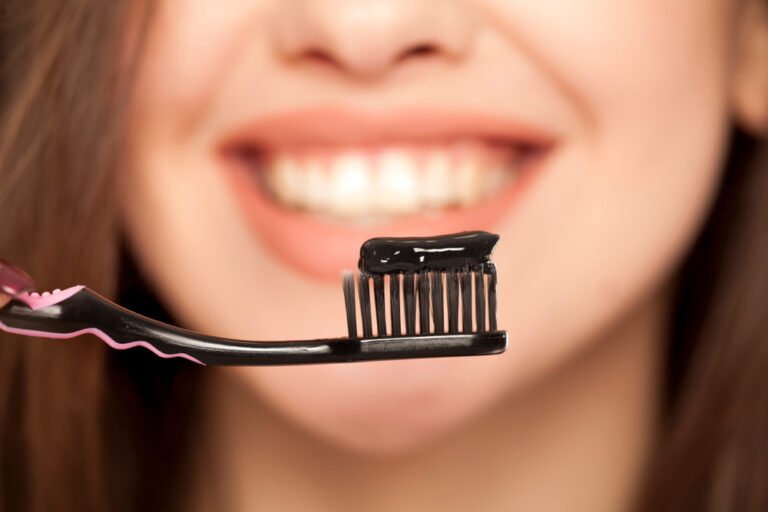Do your bottom teeth hurt when you breathe? People often experience sharp and debilitating pain in their lower jaw, seemingly for no reason!
You are sitting, watching Netflix, and lounging on your sofa, and then suddenly, as you breathe in-ouch! A crippling wave of pain overcomes your jaw, making you twitch and dig your fingers into the sofa! Been there, done that!
There are many reasons for molar pain, and people are usually curious to learn the causes of this unnecessary discomfort and ache! So, why do my bottom teeth hurt when I breathe? Let’s see!
7 Reasons and Causes Why My Bottom Teeth Hurt
Before we dive into the main matter of this article we ought to remind you of something! If you are dealing with excruciating pain in your bottom teeth, your best option is to contact a dentist!
It does not mean that you cannot inform yourself about the potential causes of that pain, so let’s check those out!
1. Your Teeth Are Sensitive
Interestingly, tooth sensitivity is quite common, and it usually affects people between the ages of 20 and 40. It is characterized by a sudden and sharp pain encompassing several teeth or the entire jaw.
We usually get this feeling when drinking or eating something extremely hot or cold, like ice cream (brain freeze). So, what is the root of this issue (double pun intended)?
We start experiencing pain after consuming cold or hot drinks and food because our teeth’s enamel gets worn out and cannot perform its main function- to protect the inner teeth. To understand this better, we must briefly go over the anatomy of teeth.
Our teeth are made of dentin (mostly), which is protected by tooth enamel, the second hardest material in the world after diamonds! What happens is the enamel breaks down due to teeth grinding, poor oral hygiene, and bad diet, and as a result, exposes dentin. That is when the trouble starts!
The main cause of tooth sensitivity is the problems with the tooth’s pulp or nerve, and this pain is often one of the last symptoms you experience before the nerve goes kaput. The death of tooth nerves can be caused by injury or tooth decay.
In this situation, you will need a root canal. The best way to protect the enamel is to brush your teeth and take care of your diet regularly; too sugary and acidic foods and drinks damage the enamel.
Therefore, fluoride treatment, which strengthens the tooth’s protective layer, is also a good option to prevent this from happening.
But I am guessing you are already there since you are reading this; in that case, we recommend toothpaste with fluoride and potassium nitrate. The best toothpaste for sensitive teeth is Sensodyne, which got the green light from many dentists!
2. You May Have Gum Disease
Commonly known as periodontal disease, gum disease can also hurt your teeth for no apparent reason. So, what is periodontal disease? As the name implies, it is a condition that affects the gums and is usually preceded by gingivitis.
This disease does not happen overnight; it starts with gum inflammation (gingivitis), and when left untreated, it leads to gum disease. Although it sounds very scary, it can be treated if you notice the symptoms early.
Also, it is very common; around 47% of adults have periodontal disease or gingivitis, according to the Centers for Disease and Prevention (CDC). So, how to tell if you have periodontal disease?
You can tell if you have bad breath and bad taste that will not go away, red, swollen, and bleeding gums, pain while chewing, loose teeth, and change in how your teeth fit when you bite.
How to treat it? Well, if you are in the early stages of gingivitis, you need to follow a strict oral hygiene regime, which includes brushing your teeth twice a day and flossing every day.
3. Maybe It Is a Sinus Infection?
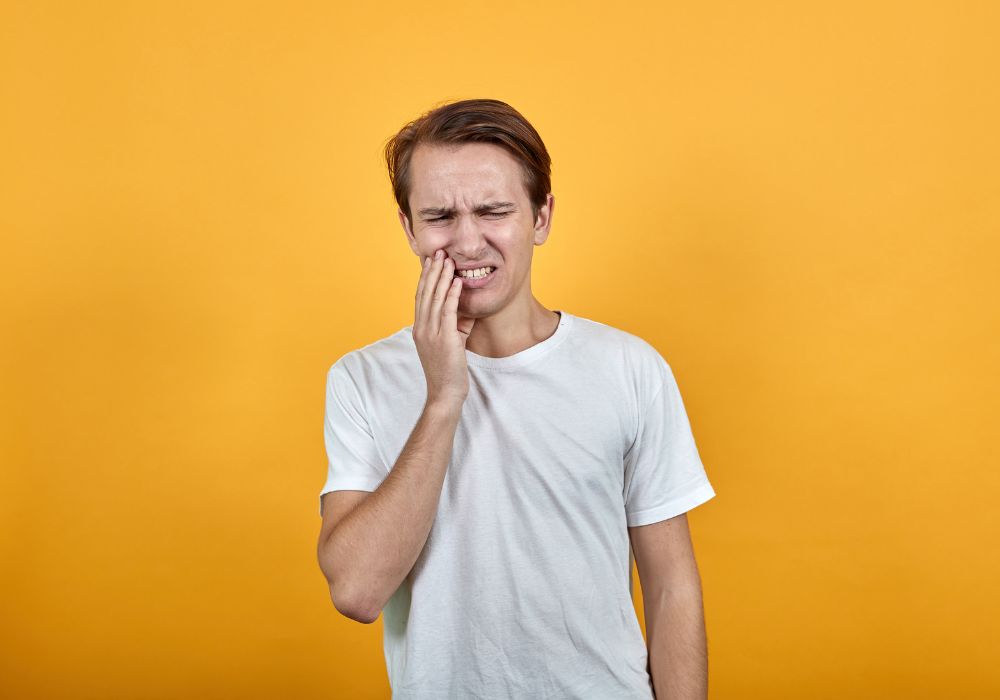
Did you know tooth pain and sensitivity can point to another health issue unrelated to teeth? Yup! That is one of the many reasons teeth are important for our general well-being- every tooth in our mouth is related by a meridian to an organ in our body!
Therefore, teeth can often suffer as a result of a sinus infection, or they can show you that you have a more serious issue.
In addition to toothache, people with a sinus infection or sinusitis often deal with headaches, bad breath, fever, pressure-like pain behind the eyes, fatigue, sinus pressure, and many others. Also, discharge and various disgusting mucus is also a common part of sinus infection.
Have you noticed some of these symptoms happening to you? If so, schedule an appointment with a dentist or ENT (ear, nose, and throat). In case you have sinusitis, you will probably get a decongestant, allergy medication, antibiotics, or a combination of all of these!
4. Maybe You Have TMJ?
TMJ, shortened for temporomandibular joint disorder, is one of many conditions associated with the group of various temporomandibular disorders (TMDs).
These conditions all have one thing in common- they affect and cause pain and dysfunction in the jaw joints and restrict the movement of it. The temporomandibular joints (there are two of them) are important because they connect the lower jaw to the skull.
Since we are discussing pain in bottom teeth, the common symptom of TMJ includes what? Can you guess? You are correct! Lower jaw pain, but also a set of other symptoms, such as limited chewing function and chronic jaw pain.
The treatment of TMJ depends on the type of disorder and the cause; if you deal with constant and severe pain in your jaw, there is a possibility your jaw is broken, and, in that case, you will need surgery. Click here to learn more about TMJs and how to treat them!
5. Are you Brushing Your Teeth Aggressively?
Before dismissing this one because it may sound funny, you would be surprised to learn how many people brush their teeth incorrectly. Well, it is not what you are doing but how you are doing it!
It is an aggressive technique, and applying too much pressure while brushing brings more damage to the teeth than does any cleaning!
Maybe you have brushed your teeth this way since you can remember it, and you think experiencing pain during the process is normal.
Well, it is not, and it can lead to enamel erosion and even gum recession. To be honest, enamel erosion has many other causes, including regular consumption of foods and drinks high in acids.
Those are citrus fruits, acidic drinks and dressings, tomatoes, pickles, and others. The major problem with aggressive brushing is that it damages the structure of the teeth, making them more susceptible to tooth decay and other conditions.
Regarding gum recession, this condition is problematic because as the gums recede, they expose the tooth’s root, opening the door for infections and gum disease.
Now, let’s get brutally honest! The sustained damage cannot be undone, but you can get fillings to fill those cracks and areas where the tooth is worn away!
6. Do you Grind Your Teeth Often?
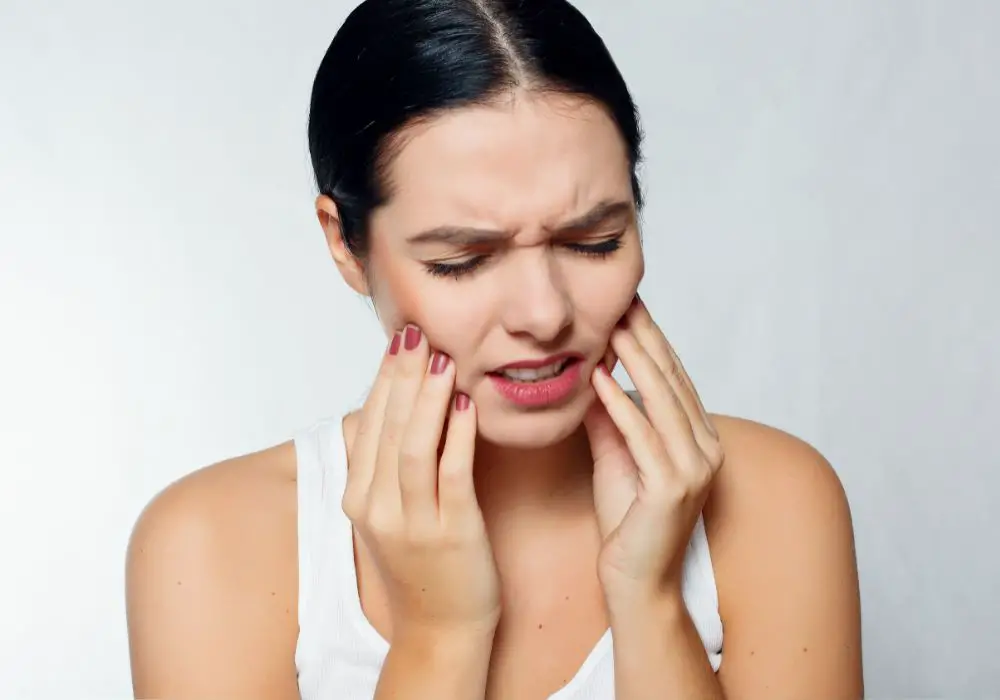
Aggressively brushing and grinding the teeth (Bruxism) is a kinda ‘potato potata,’ with the difference that most people grind their teeth unconsciously and during their sleeping time!
Doing it here and there will probably not cause much damage, but constant grinding can result in damaged or loose teeth!
The issue can be rooted in the way your teeth meet and fit, so it is best that you contact a dentist, so they can determine whether your teeth fit together correctly!
7. Maybe You Have Cavities or a Cracked Tooth?
Tooth decay is the most common culprit of tooth pain. Cavities are essentially decayed areas of teeth, and they resemble small openings, hence the name cavities.
What happens is that the outer tooth layer gets damaged, exposing the inner tooth and allowing the bacteria to swarm in and have a ‘party’! The longer you ignore the cavities, the lower the chances of getting that tooth fixed!
The cavities will not hurt in its early stages, but as the issue progresses, you will start to feel sudden pain without apparent cause. Why? Well, the decay has reached the area near the nerve, causing you pain.
On the other hand, you may have a cracked tooth, or you have recently sustained an injury or trauma to your lower jaw! Maybe you’ve eaten a hard candy or got in a fight with someone?
Depending on the type of injury, you will experience difficulties with chewing and eating coupled with the pain. Your best bet is to contact a dentist as soon as possible so they can determine whether there is an underlying issue or if the injury is not as innocent as it seemed!
Conclusion
Bottom teeth can hurt for several reasons, which we have mentioned above.
But “Repetition is the mother of learning,” so let’s review those again- grinding teeth while sleeping, cavities, cracked teeth, gum inflammation and disease, teeth sensitivity, TMJ, aggressive brushing and flossing, sinus infection, and dental procedures!
How do you manage tooth pain? Do you have any secret remedies to share? If you have any comments, do not be shy and ask away!


